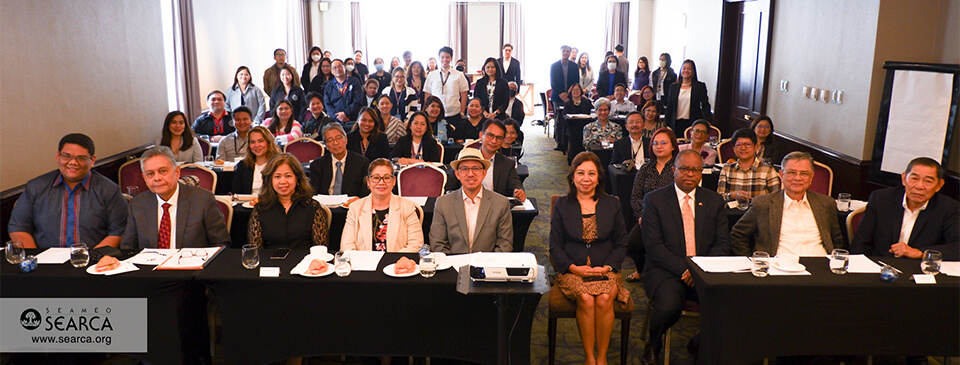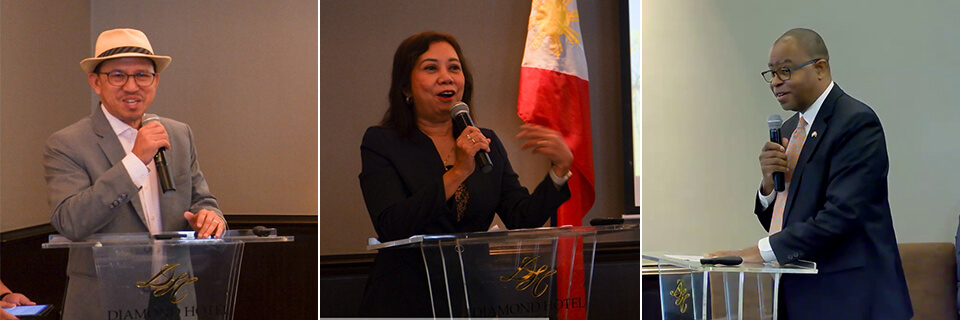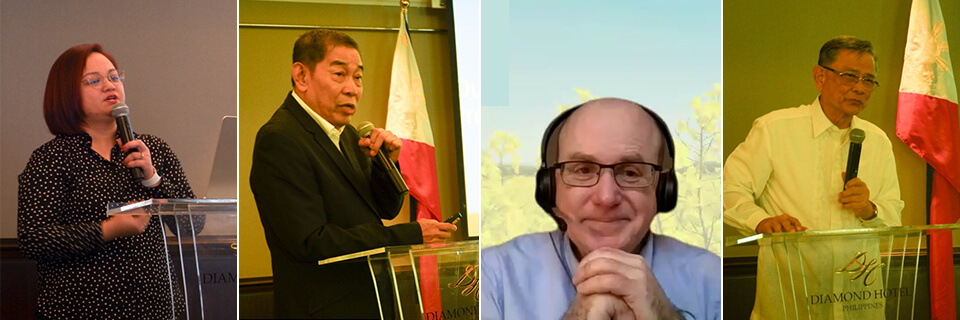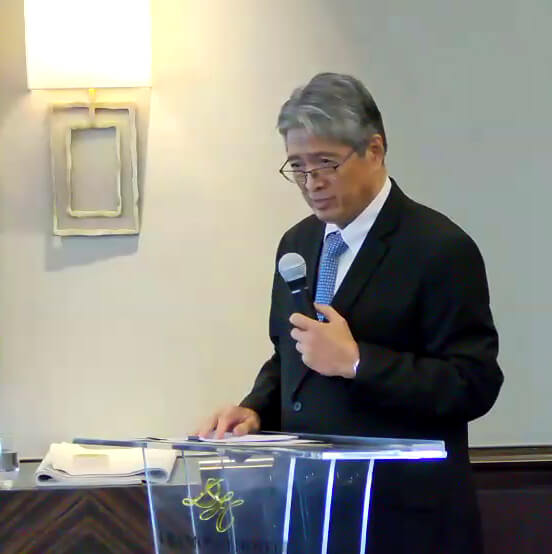 The event gathered almost a hundred participants composed of judges, lawyers, law students, and legal researchers on-site and online.
The event gathered almost a hundred participants composed of judges, lawyers, law students, and legal researchers on-site and online.
Continuing its commitment to empowering members of the judiciary to create sound, unbiased, and evidence-based decisions and policy recommendations, the Southeast Asian Regional Center for Graduate Study and Research in Agriculture (SEARCA) teamed up with the Philippine Judicial Academy (PHILJA), the Philippine Association of Law Schools (PALS), the United States Department of Agriculture-Foreign Agricultural Service Manila (USDA-FAS Manila), and the International Service for the Acquisition of Agri-biotech Applications (ISAAA), Inc. for the Forum on Improving the Policy Environment for Biotech Industry Development held on 14 July 2023 at Manila Diamond Hotel and online via Zoom.
SEARCA Director Dr. Glenn Gregorio encouraged the participants to collaborate with lead experts and to be kept informed with updates in the field of biotechnology, its science, and its strategic importance and potential benefits for Filipinos as well as related issues that can potentially usher much-needed societal transformation, especially in the agricultural sector.
"We hope to prepare the judiciary in crafting and approving policies and making science-based decisions for the acceptance and adoption of more biotech crops. This will immensely contribute to poverty alleviation and sustainable and climate resilient agriculture in the Philippines," ISAAA, Inc. Executive Director Dr. Rhodora Aldemita stated in her message. She also noted that activities like this keep the Philippines' standing as the premiere country in biotech adoption, biosafety regulation, and communication in the Asia Pacific.
 (From left) Dr. Glenn Gregorio, Dr. Rhodora Aldemita, and Mr. Lorenzo New deliver their opening messages.
(From left) Dr. Glenn Gregorio, Dr. Rhodora Aldemita, and Mr. Lorenzo New deliver their opening messages.
Environment, Science, Technology, Heath, and Energy Unit Chief Lorenzo New from the US Embassy Manila emphasized the need for an enabling policy environment for biotech. "For innovation to flourish, biotechnology needs regulatory systems that not only uphold the highest standards of health and environmental safety but are flexible and follow the science," he said. "These new technologies promise to speed up crop development, ensure farmers' accessibility to more sustainable solutions, and give consumers safe, affordable access to foods, but only if policy environments do not unnecessarily discriminate against their use," Mr. New added.
Experts such as Ms. Kristine Tome from ISAAA, Inc. provided a brief background on the status of biotech in the Philippines. Meanwhile, Dr. Leonardo Gonzales from Strive Foundation, Dr. Michael Leader from Bayer Australia, and Dr. Benigno Peczon from the Coalition for Agricultural Modernization in the Philippines, (CAMP) Inc. spoke on several issues, including the socioeconomic implications of using unlicensed GM corn seeds, and the impact of the glyphosate ban and Writ of Kalikasan on crops, respectively.
 (From left) Ms. Kristine Tome, Dr. Leonardo Gonzales, Dr. Michael Leader, and Dr. Benigno Peczon during the discussions
(From left) Ms. Kristine Tome, Dr. Leonardo Gonzales, Dr. Michael Leader, and Dr. Benigno Peczon during the discussions
The open forum served as a venue for participants to express their thoughts on the topics. Among the concerns raised was the possibility that commercialized biotech crops be deemed unsafe in the future. Dr. Aldemita explained that it depends not on the number of years but on its substantial equivalence compared with the conventional variety. The experts also affirmed that the country has a rigorous biosafety regulatory framework that ensures the safety of these crops. Another question focused on effectively communicating agri-biotech to low-income farmers. Dr. Peczon responded that instead of a top-down approach, farmers should be included in the decision-making process and be consulted on their needs. He added that there are many parameters to success, so there should be an open dialogue among key stakeholders in the agricultural sector.
 Hon. Justice Jose Reyes, Jr. gives his closing message.Finally, Hon. Justice Jose Reyes, Jr., the Chair of the Special Areas of Concern and Professorial Lecturer II from PHILJA, challenged the judiciary, lawyers, law students, and legal research staff to take an active role in helping improve the policy environment for biotech industry development as they will be the critical link of biotech innovations from the laboratory into the homes of the common Filipinos.
Hon. Justice Jose Reyes, Jr. gives his closing message.Finally, Hon. Justice Jose Reyes, Jr., the Chair of the Special Areas of Concern and Professorial Lecturer II from PHILJA, challenged the judiciary, lawyers, law students, and legal research staff to take an active role in helping improve the policy environment for biotech industry development as they will be the critical link of biotech innovations from the laboratory into the homes of the common Filipinos.
The forum aimed to equip members of the judiciary with knowledge of the complexities and protocols of agri-biotech development since these modern technologies are expected to continually be developed in the field. The second session gathered almost a hundred participants on-site and online.